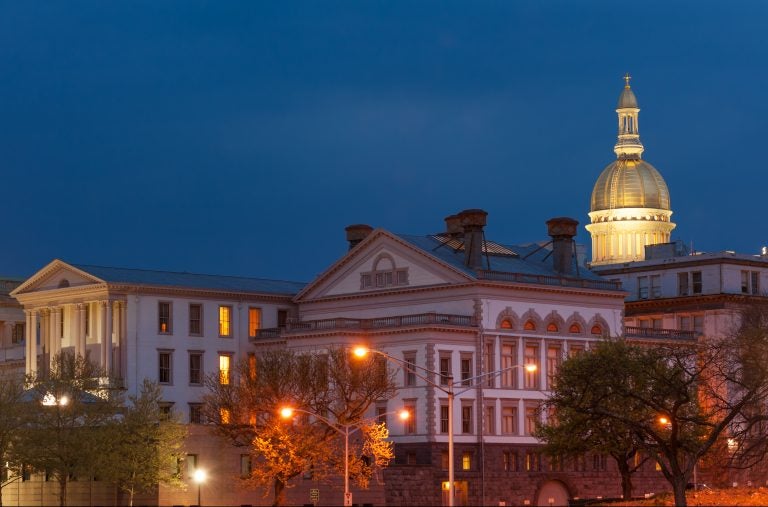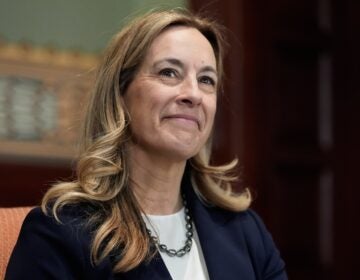After override threat, N.J. ‘dark money’ bill on its way to becoming law
A bill that would require more nonprofit groups in N.J. to publicize their donors is on its way to becoming law, after Gov. Phil Murphy avoided a veto override.

NJ state capitol complex at night in Trenton, New Jersey. (Tashka/BigStock)
A bill that would require more nonprofit groups in New Jersey to publicize their donors is on its way to becoming law, after Gov. Phil Murphy avoided what would have been an embarrassing veto override.
Murphy at first conditionally vetoed the so-called dark money bill, saying he believed it had legal issues. But after top Democrats in the state Legislature threatened to override his veto, Murphy agreed to sign the original bill.
“The Governor looks forward to signing the legislation while working with the Legislature to resolve outstanding issues by the end of the month,” said Alyana Alfaro, a spokeswoman for Murphy.
State Sen. President Steve Sweeney, D-Gloucester, said Murphy agreed to sign the original legislation with no strings attached.
“If there’s concerns the governor has going forward, we’ll look at them,” Sweeney said. “But this was strictly, ‘We’re going to override, but if you’re willing to sign the bill that we passed, we’ll skip the override.’ It’s that simple.”
Both the state Senate and Assembly passed the bill for a second time on Monday so that Murphy could sign it into law.
It would require certain politically-active nonprofits to disclose their donors, but some groups that say they do minimal political work argue they would be adversely affected by the new rules.
The legislation, which was first introduced in 2016, got new life after a political group with close ties to Murphy backtracked on a promise to disclose its donors.
New Direction New Jersey, which continues to run ads supporting Murphy’s agenda, is a 501(c)4 “social welfare” organization, which is required under the legislation to make donors and expenditures public.
Recently the group began running an ad featuring Murphy, arguing for increasing the income tax on those earning $1 million or more a year. Sweeney and others in the legislature oppose that tax and it’s a likely sticking point as budget negotiations come to a head this month.
WHYY is your source for fact-based, in-depth journalism and information. As a nonprofit organization, we rely on financial support from readers like you. Please give today.




